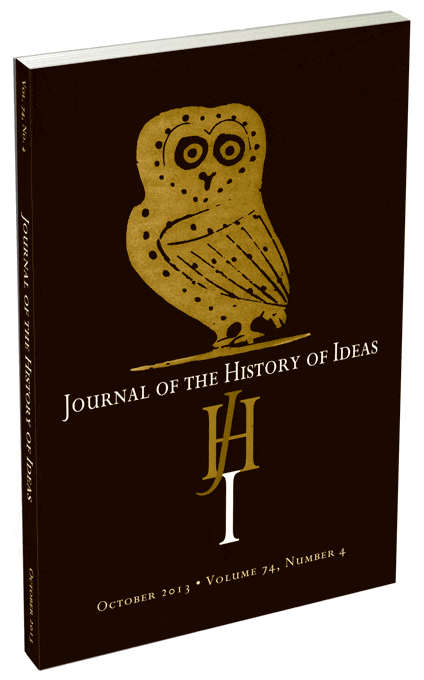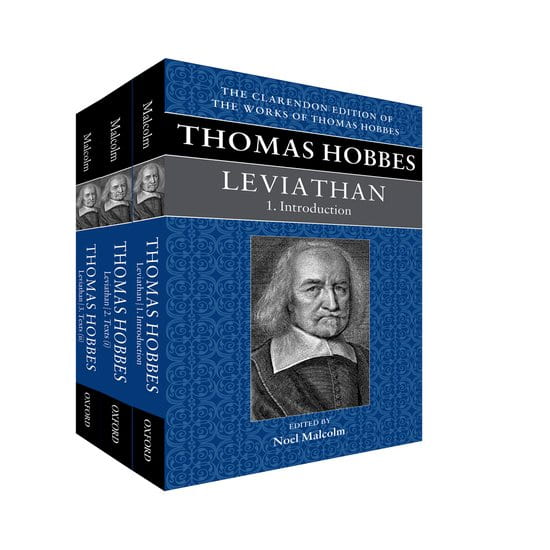April and May are busy months, not least for our parent journal. This Friday, the Journal of the History of Ideas will present its 2015 Arthur O. Lovejoy Lecture at the University of Pennsylvania. Professor Marcia Colish (Yale University) will speak on “The Boys on the Beach: Children’s Games and Baptismal Grace in Medieval Thought.” The lecture begins at 5:00 at the McNeil Center for Early American Studies (northeast corner of 34th and Walnut Streets) with a reception to follow. All those in Philadelphia are most warmly invited to attend.
 The Journal itself has also seen its latest quarterly issue into print for April. While we may live in an age of JSTOR, Project Muse, and PDFs—perhaps more than we may ever read—every volume of the Journal of the History of Ideas remains a work of editorial and ecumenical wonder. The latest volume is no different. In “Reconsidering Literary Autonomy: From an Individual towards a Relational Paradigm,” Aukje van Rooden ranges from sociology and philosophy to aesthetics and literary theory, and from Schiller, Coleridge, and Karl Philipp Moritz to the recently deceased M.H. Abrams, Charles Taylor, and Nicolas Bourriaud in order to clear a new space for literature qua literature. Willem Styfhals looks to Karl Löwith and Jacob Taubes on modern eschatology—two wonderful thinkers entangled with one another’s thought . Styfhals shows how Löwith and Taubes wrestle with one another as much as with World War II more broadly-speaking. And Raf de Bont takes his readers into the world of the Swiss zoologist, ethnographer, and scientist Paul Sarasin and his work on the global stage, interwar ‘pygmies,’ Malthusian fears of postwar Europe, and finally the environmental activism of Raymond Dasmann.
The Journal itself has also seen its latest quarterly issue into print for April. While we may live in an age of JSTOR, Project Muse, and PDFs—perhaps more than we may ever read—every volume of the Journal of the History of Ideas remains a work of editorial and ecumenical wonder. The latest volume is no different. In “Reconsidering Literary Autonomy: From an Individual towards a Relational Paradigm,” Aukje van Rooden ranges from sociology and philosophy to aesthetics and literary theory, and from Schiller, Coleridge, and Karl Philipp Moritz to the recently deceased M.H. Abrams, Charles Taylor, and Nicolas Bourriaud in order to clear a new space for literature qua literature. Willem Styfhals looks to Karl Löwith and Jacob Taubes on modern eschatology—two wonderful thinkers entangled with one another’s thought . Styfhals shows how Löwith and Taubes wrestle with one another as much as with World War II more broadly-speaking. And Raf de Bont takes his readers into the world of the Swiss zoologist, ethnographer, and scientist Paul Sarasin and his work on the global stage, interwar ‘pygmies,’ Malthusian fears of postwar Europe, and finally the environmental activism of Raymond Dasmann.
The April volume of the JHI also features a symposium of scholars discussing the Clarendon Edition of Hobbes’s Leviathan. The work of a lifetime by Sir Noel Malcolm, this edition has already excited a great deal of both popular and scholarly attention in what can only be called a Hobbesian resurgence in intellectual history today. (For a taste, see the Economist’s review, John Gray’s take in The New Statesman, Blair Worden in the Literary Review, and Keith Minogue’s reading of the edition in The New Criterion.) Kinch Hoekstra, Sarah Mortimer and David Scott, Mónica Brito Vieira, and Jon Parkin all offer spirited readings of Hobbes as well as of Malcolm’s editorial efforts, followed by a masterly response from Malcolm defending both his introduction to the work (itself a separate volume) and the complicated textual and intellectual history of Hobbes’s great work.
The state of the Republic of Letters is strong, and we look forward to hearing our readers’ thoughts on both the print JHI and our efforts here at the blog. (And do take our word that the former’s worth checking out in the library!)




Leave a Reply